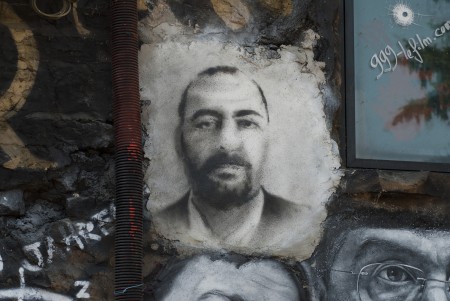
This article was originally published by the Polish Institute of International Affairs (PISM) on 5 May 2016.
Former Baathists—members of the Baath Party that ruled Iraq under Saddam Hussein—including army and security officers, are today the most influential figures in the Islamic State (IS). The opportunism and ideological ambiguity of the former regime elements (FRE) make them ruthless tacticians who use torture and intimidation, but they should also be seen as a potential Achilles heel of the IS. The EU, together with the United States, needs to cooperate on political intelligence in order to examine the possibilities and conditions for weakening IS by bargaining with some of its key members.
Origins of Cooperation between Baathists and Jihadists
After the U.S. invasion of Iraq in 2003, the Coalition Provisional Authority embarked on the “de-baathification” of Iraq, a process that aimed to remove senior Baath Party members from the country’s institutions and political system. More than 400,000 members of the defeated Iraqi Armed Forces (IAF) were dismissed and barred from further employment in the government sector, while being allowed to keep their weapons. In the faltering economy, dominated by the public sector, de-baathification meant social exclusion or at least a sudden deprivation of privileges that the elite had become used to over decades. Some of them formed local insurgent forces, and later joined the rising jihadist groups including Al-Qaeda in Iraq, which in 2006 established the Islamic State of Iraq and the Levant (today’s IS). To a large extent this cooperation resulted from discriminatory policies of the Shiah prime minister Nouri al-Maliki (2006–2014), who persecuted former officials and marginalised the entire Sunni population.
What united the FRE and the jihadists was the common enemy, the United States and Maliki’s government, rather than ideology. Even during the Faith Campaign (Hussein’s shift towards Islam in the 90s) Baath Party members lived relatively secular lives. Despite different ideological backgrounds, the common enemies and shared desire for power led to a strong synthesis of the jihadists and the ex-Baathists. The degree to which this occurred can be illustrated by the fact that Abu Bakr al-Baghdadi, the current leader of IS, was elected to the position in 2010 owing to the support of a former intelligence colonel, Samir al-Khlifawi, who subsequently cleansed the IS management and replenished it with further FRE.
